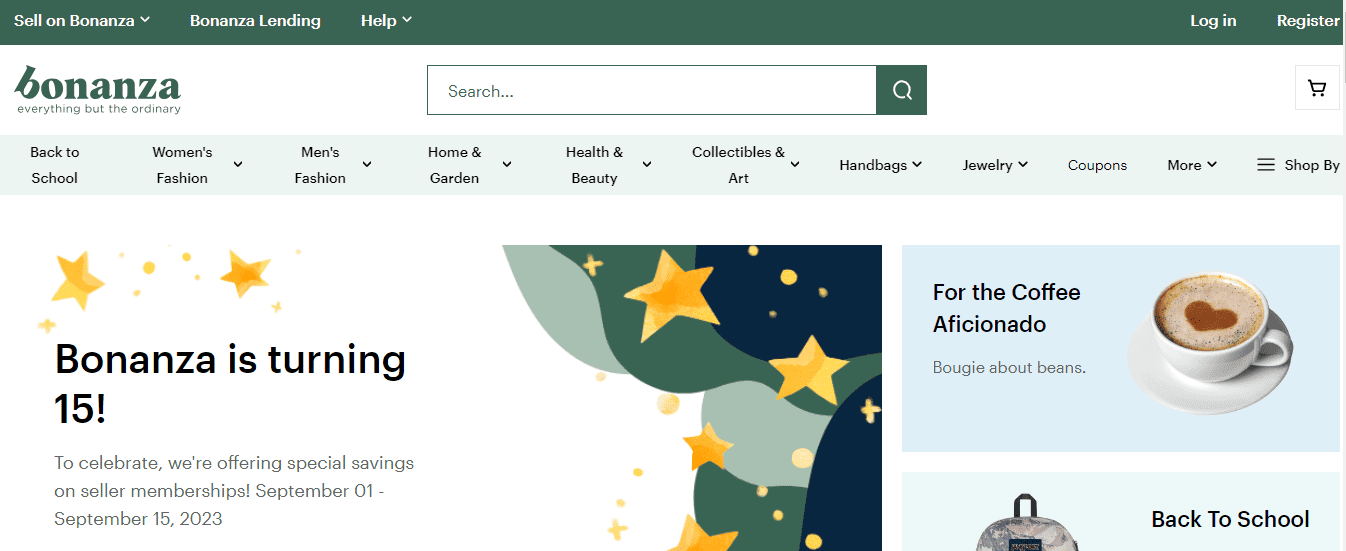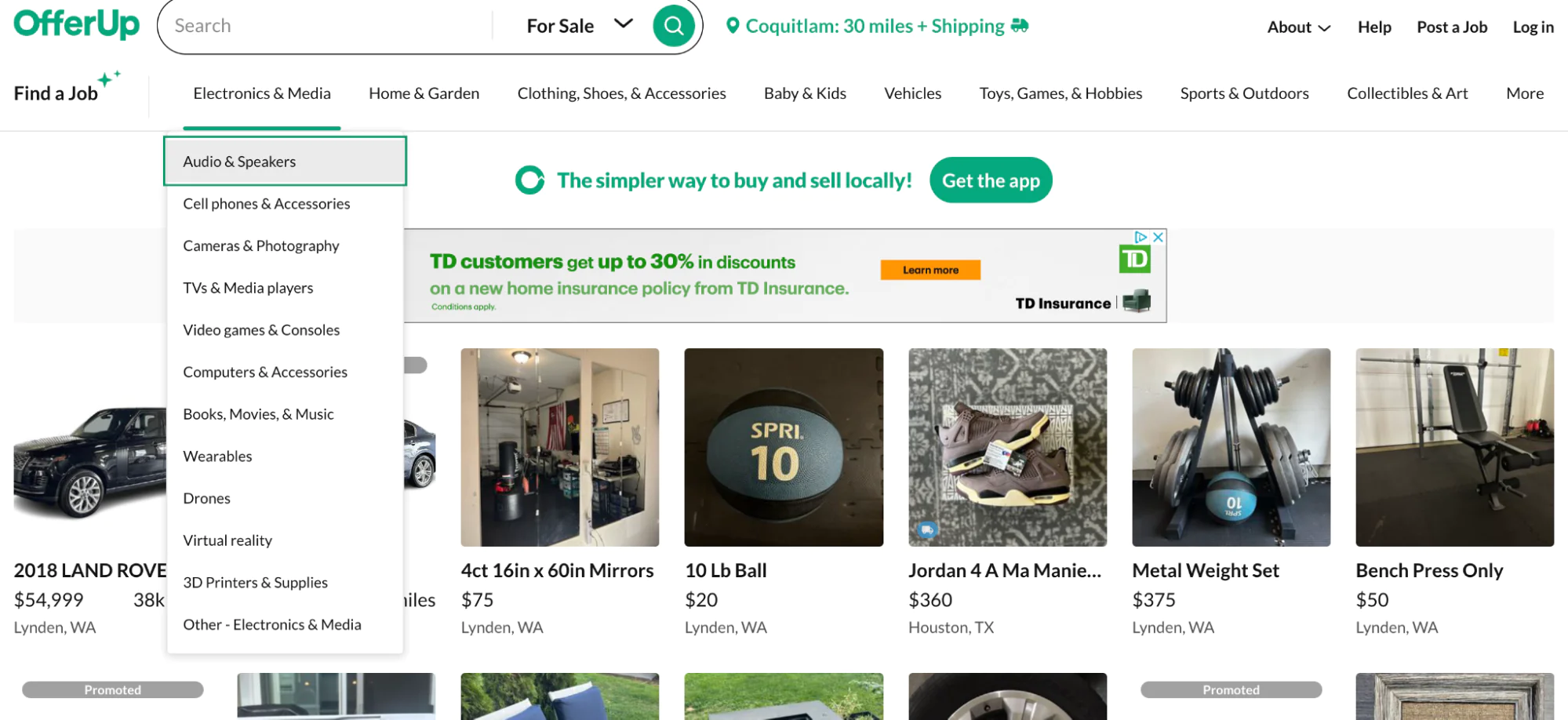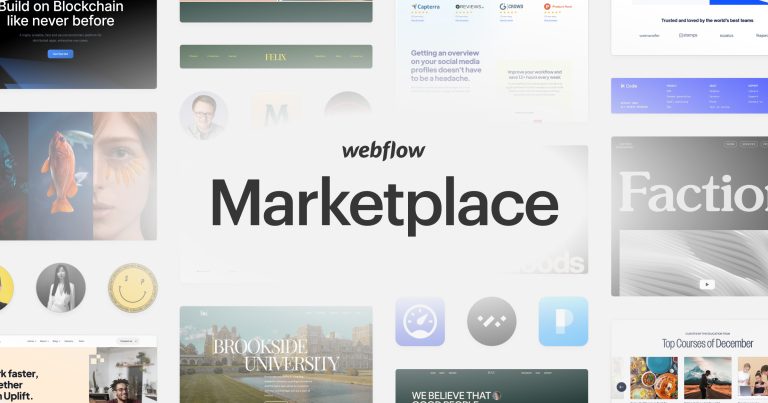Top 10 best sites like eBay in 2024
The online selling landscape is no longer a one-horse race. While eBay remains a giant in the industry, a plethora of alternative platforms have emerged, catering to diverse seller needs and buyer preferences. Whether you’re a seasoned entrepreneur running a full-fledged online store or a casual seller looking to declutter your closet and make some extra cash, there’s a perfect “sites like ebay” option waiting to be discovered.
Beyond eBay: Exploring Sites like Ebay for Sellers
Choosing the right online marketplace is crucial for success. Here’s why exploring “sites like ebay” can be beneficial:
- Tailored Reach: General marketplaces like eBay offer vast audiences, but niche platforms allow you to target specific buyer demographics with laser focus. Imagine a seller specializing in vintage sports memorabilia. On a platform like Etsy, they might get lost in the sea of handmade crafts. However, a dedicated sports memorabilia marketplace would connect them directly with passionate collectors actively seeking their products.
- Competitive Advantages: Some platforms boast significant advantages over eBay. Lower fees, user-friendly interfaces designed for mobile-first selling, or stronger marketing tools can all contribute to a smoother and more profitable selling experience.
- Community Focus: Niche marketplaces often foster a tighter seller community offering valuable support and networking opportunities. New sellers can learn from experienced veterans, and everyone benefits from a collaborative environment where knowledge sharing and trend discussions are commonplace.
Top 10 sites like eBay
These platforms cater to a vast array of products, similar to eBay, but each offers unique advantages to help you reach your target audience and navigate the online selling landscape:
Amazon
The undisputed leader, boasting global reach, a massive customer base, and robust fulfillment options through Fulfillment by Amazon (FBA). This translates to significant sales potential, but be prepared for fierce competition and potentially higher fees compared to other options.
Pros: Global reach, massive customer base, FBA integration
Cons: High competition, potentially higher fees
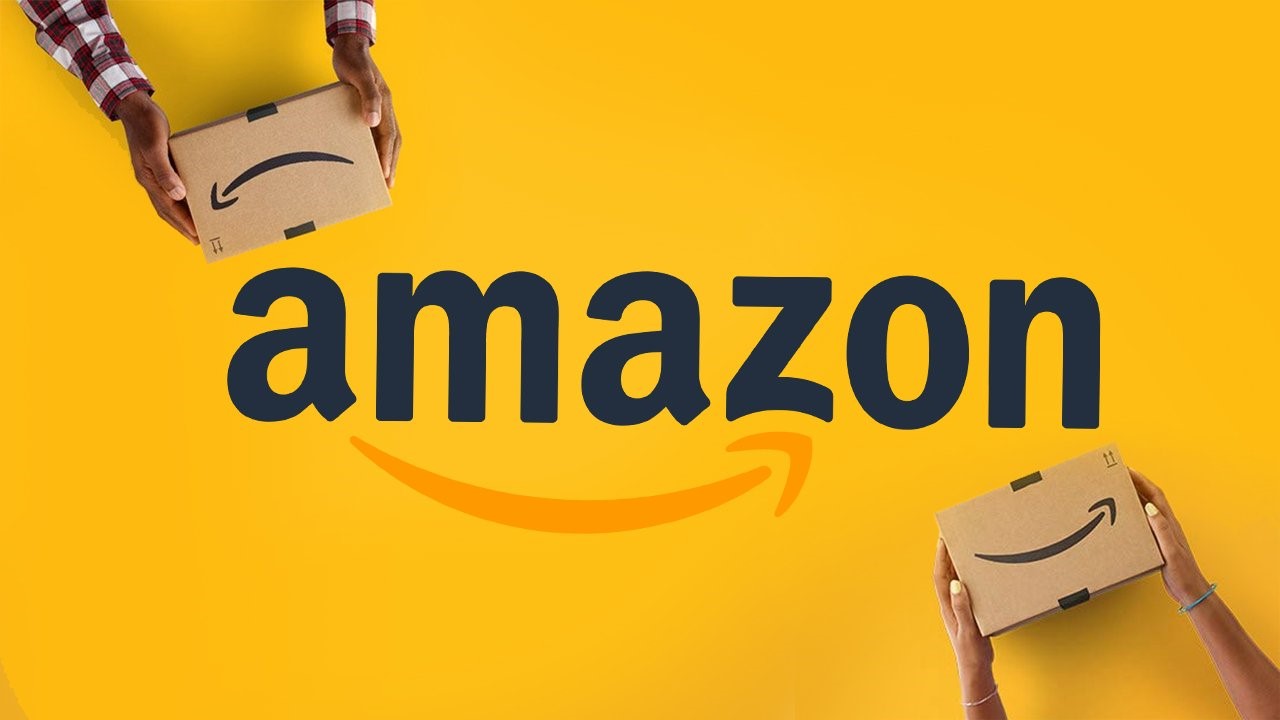
Etsy
A haven for handcrafted treasures, vintage finds, and one-of-a-kind creations. Perfect for artisans and those selling unique items that wouldn’t thrive in a general marketplace. Etsy fosters a vibrant community of makers and collectors, providing a targeted audience for your creative offerings.
Pros: Targeted audience for handmade and vintage goods, strong community focus
Cons: Limited reach for non-artisan products

Walmart Marketplace
Leverage Walmart’s brand recognition and competitive pricing to reach a budget-conscious audience familiar with their online shopping experience. This platform is ideal for sellers offering everyday items at attractive price points, where brand trust and familiarity can be a significant advantage.
Pros: Leverages Walmart’s brand trust, targets budget-conscious audience
Cons: May not be suitable for high-end or unique products
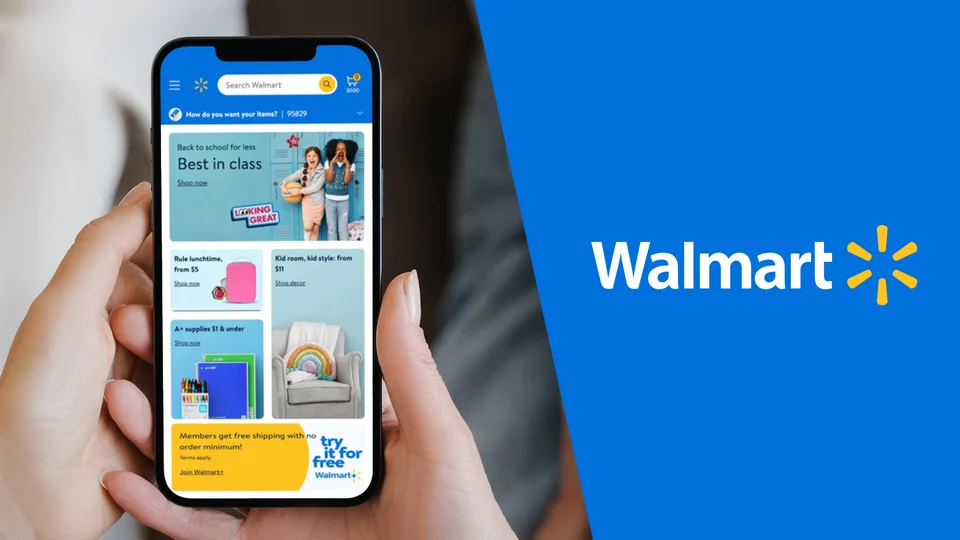
Wish
A popular platform known for impulse buys with unbelievably low prices. Ideal for sellers with high-volume, low-margin products where rapid turnover is key. Success on Wish often hinges on aggressive pricing strategies and capitalizing on impulse buying trends.
Pros: Ideal for high-volume, low-margin products, capitalizes on impulse buying
Cons: Requires aggressive pricing strategies, may not be suitable for high-end products

Bonanza
A versatile platform with lower fees compared to eBay. Offers a mix of vintage finds, collectibles, and everyday items, appealing to a broad range of sellers. Bonanza provides a good balance between fees and reach, making it a strong option for sellers with diverse product catalogs.
Pros: Lower fees compared to eBay, caters to a broad audience
Cons: May not offer the same level of brand recognition as some competitors
The beauty of online marketplaces extends beyond general platforms like eBay. Niche marketplaces cater to specific buyer interests, allowing you to tap into a passionate and engaged audience who are actively seeking the products you offer. Here’s a closer look at some popular niche marketplaces and the unique advantages they provide:
Poshmark
Imagine a thriving online community dedicated to fashion! Poshmark is more than just a marketplace; it’s a social hub where fashionistas connect, share style inspiration, and buy and sell pre-loved clothing, shoes, and accessories. Through features like “likes,” comments, and virtual closet parties, Poshmark fosters a dynamic environment that encourages engagement and drives sales.
Pros: Ideal for reselling fashion items, strong social commerce features, engaged user base
Cons: May not be suitable for non-fashion products
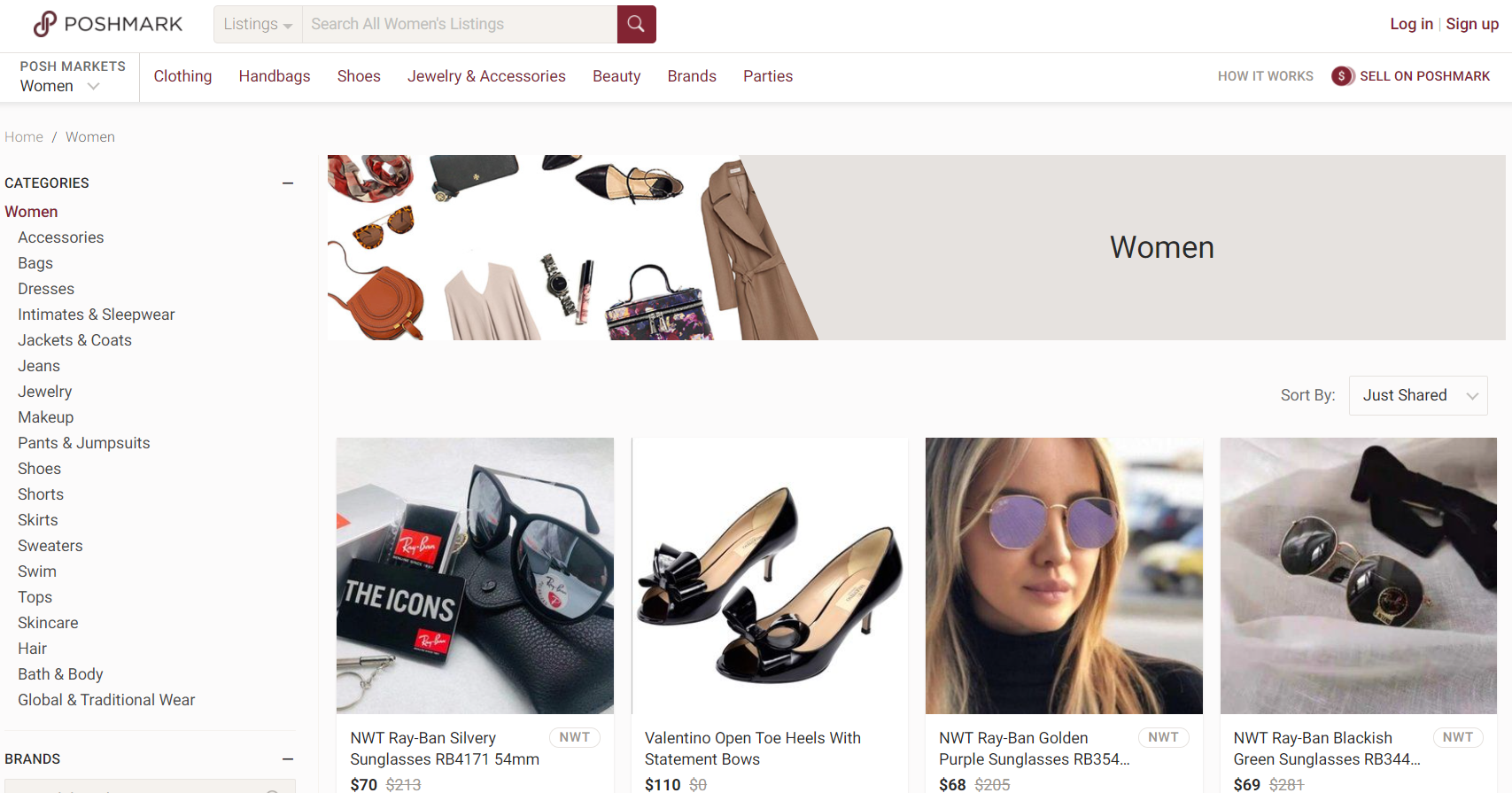
Reverb
Musicians and gear enthusiasts, rejoice! Reverb is your one-stop shop for everything music-related. This dedicated platform offers a space to buy, sell, and discuss instruments, music equipment, sound systems, and more. Reverb caters to both professional musicians seeking high-end gear and hobbyists looking for their first instrument.
Pros: Focused audience of music enthusiasts, caters to a wide range of musical needs, strong community for gear discussions
Cons: Limited reach for non-music related products

Mercari
Don’t be intimidated by the world of online selling! Mercari’s user-friendly interface makes it easy for anyone to list and sell items, regardless of experience. This broad platform caters to casual sellers with a mix of new and pre-owned items, from clothing and electronics to home goods and collectibles.
Pros: Simple and user-friendly platform, broad audience for diverse products
Cons: May lack the focus and community engagement of niche marketplaces
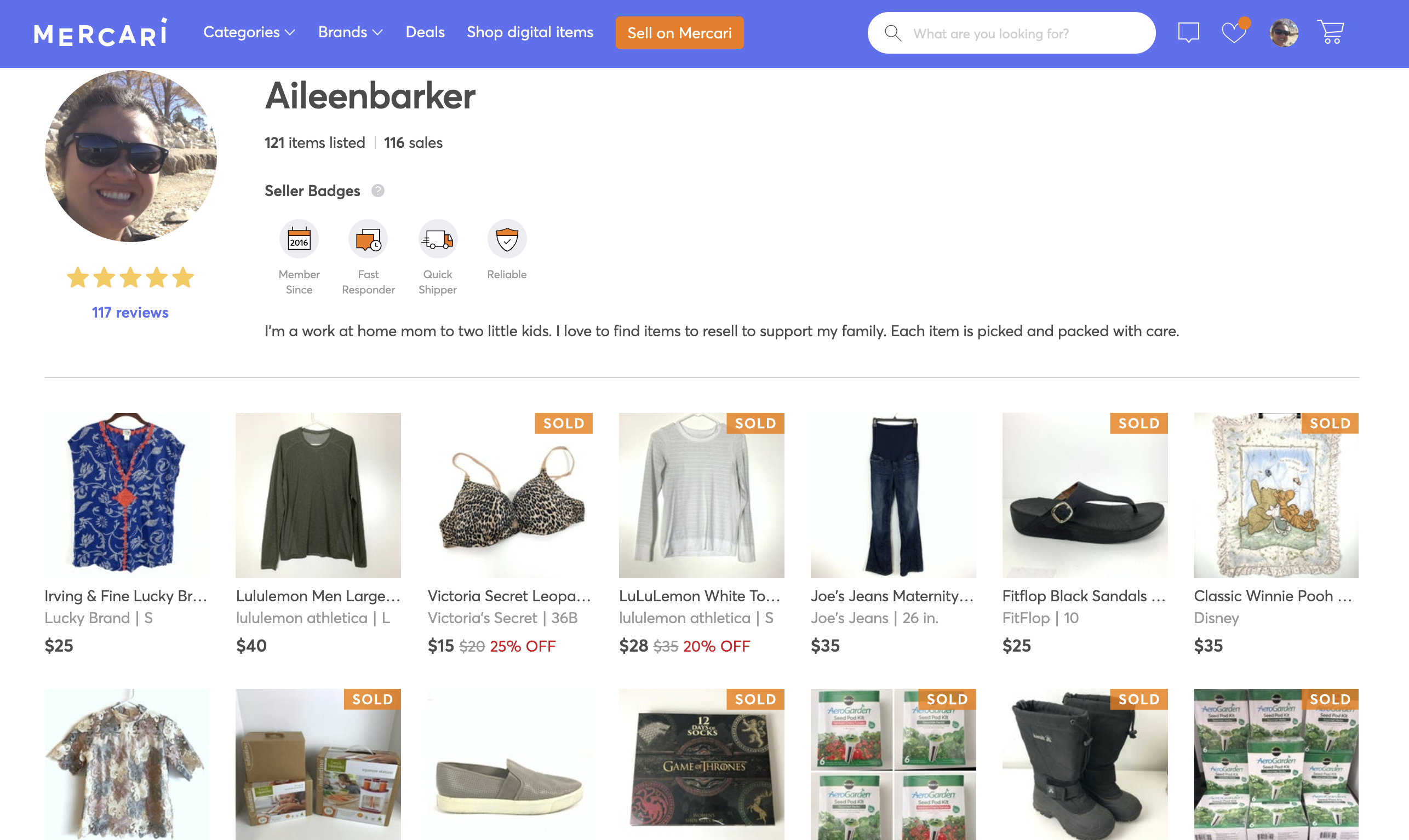
Depop
Depop is a haven for trendsetters and young entrepreneurs with a passion for vintage and streetwear fashion. This platform thrives on user-created content and trend curation, making it the ideal space to showcase your unique finds and creative style. Depop’s vibrant community is constantly seeking the latest and greatest, making it a great platform for those selling one-of-a-kind clothing and accessories.
Pros: Ideal for selling vintage and streetwear fashion, strong focus on user-created content and trendsetting styles
Cons: May not be suitable for mainstream or non-clothing products
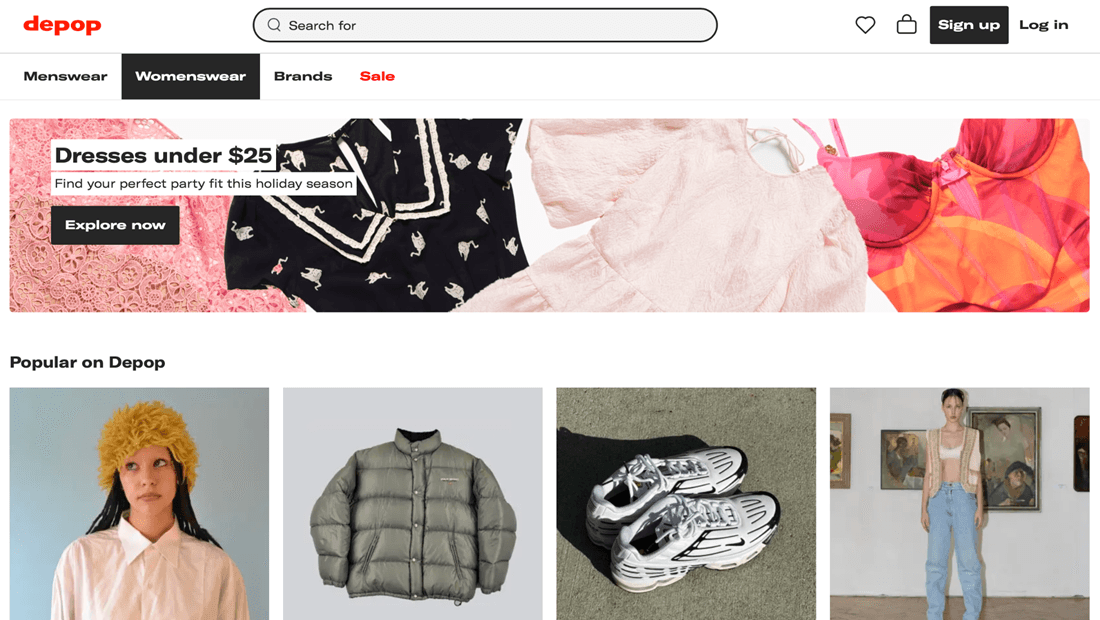
OfferUp
Skip the shipping hassles! OfferUp is a local marketplace facilitating face-to-face transactions for a smooth and convenient selling experience. This platform is ideal for selling bulky items like furniture, appliances, and sporting goods, where local pickup is preferred.
Pros: Convenient local listings, eliminates shipping costs, ideal for bulky items
Cons: Limited reach compared to national platforms
Choosing the Perfect Niche Marketplace:
To maximize your success in a niche marketplace, consider these factors:
- Target Audience: Research the platform’s demographics and understand the types of products their users are actively seeking.
- Community Engagement: Leverage the platform’s built-in features and participate in discussions to connect with potential buyers.
- Product Fit: Ensure your offerings align with the platform’s focus and cater to the specific interests of its user base.
By diving into the world of niche marketplaces, you can unlock a passionate audience eager to discover your unique products. Remember, success often lies in finding the perfect blend of your selling goals and a community that aligns with your offerings.
Choosing the Right Platform: A Comparative Analysis
Selecting the best “sites like ebay” boils down to carefully considering these factors:
- Selling Fees and Commission Structures: Compare fees across different platforms, including listing fees, final value fees, and payment processing costs, to maximize your profit margins. Some platforms offer tiered fee structures based on selling volume, while others have flat listing fees.
- Target Audience and Product Fit: Research the platform’s demographics and product categories to ensure your offerings resonate with the target audience. Selling handcrafted jewelry on a platform geared towards sports memorabilia collectors is unlikely to yield success. Selling handcrafted jewelry on a platform geared towards sports memorabilia collectors is unlikely to yield success.
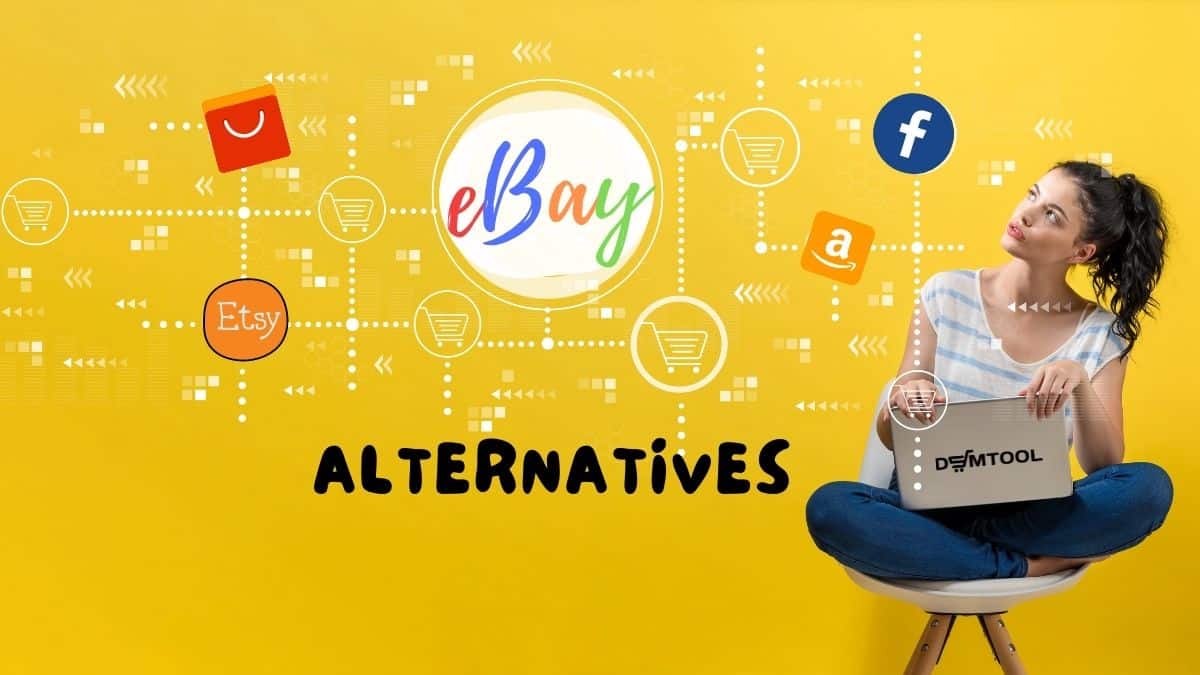
- User Interface and Ease of Use: Evaluate how user-friendly the platform is for sellers. Consider factors like listing creation tools, mobile app functionality, and overall intuitiveness. Platforms with a smooth and efficient selling process allow you to focus on listing more products and managing your business effectively.
- Marketing and Customer Reach: How does the platform help you reach potential buyers? Do they offer built-in marketing tools, social media integration, or search engine optimization features? A strong marketing infrastructure on the platform’s end translates to increased visibility for your listings.
- Brand Reputation and Trustworthiness: Research the platform’s reputation among sellers and buyers. Look for platforms with a history of secure transactions, reliable customer support, and a commitment to fostering a positive user experience.
Finding Your Perfect Online Selling Home
The vast array of “sites like ebay” empowers you to choose a platform that aligns perfectly with your selling goals and product offerings. Exploring alternatives allows you to potentially benefit from lower fees, targeted audiences, and a more supportive community.
Conclusion
The vast landscape of “sites like ebay” empowers you to choose a platform that perfectly aligns with your unique selling goals and product offerings. Exploring alternatives can unlock a treasure trove of benefits, from lower fees and targeted audiences to a supportive seller community.
But navigating this diverse online marketplace ecosystem can be overwhelming. That’s where OnextDigital steps in. We’re a comprehensive digital solutions agency dedicated to empowering online sellers like you. Here’s how we can help you thrive: Web Development Service, Mobile App Development, UX/UI Design Service, White label software service, and CRM & auto marketing implement service. Contact OnextDigital today and let’s discuss a customized strategy to propel your online selling journey to the next level!


